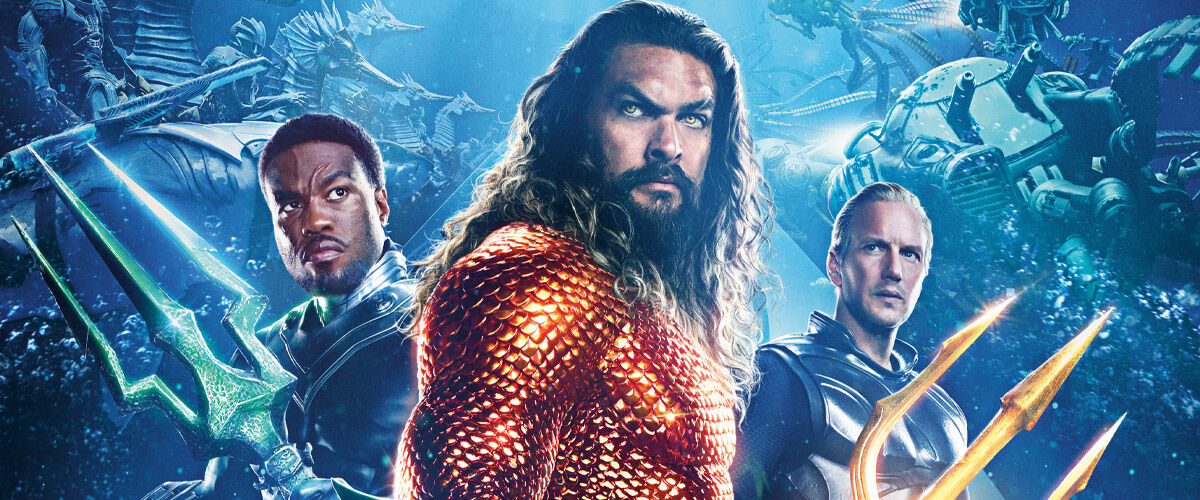It’s the proverbial sink or swim premise and even as DC Extended Universe (DCEU) star Jason Momoa returns in Aquaman and the Lost Kingdom, plunging once more into the depths of Atlantis to thwart an ancient power threatening destruction to Atlantis and the world, there’s no escaping the doom cloud that has emerged over this project which is unfortunate because this sequel is actually the best live-action superhero film of 2023.
Despite the promise of intense comic book action, this sequel has had to, and continues to navigate turbulent waters. After the monumental success of the first Aquaman, which caused a box-office tsunami as the best performing DC superhero film ever made, expectations have been sky-high for this delayed deep-sea adventure. But from the leadership changes to DC Studios, delays and reshoots, and coupled with negative reports and Amber Heard’s highly publicised legal battle, the project has been anything but smooth sailing, having stirred the waters that has led to a mix of anticipation and scepticism.
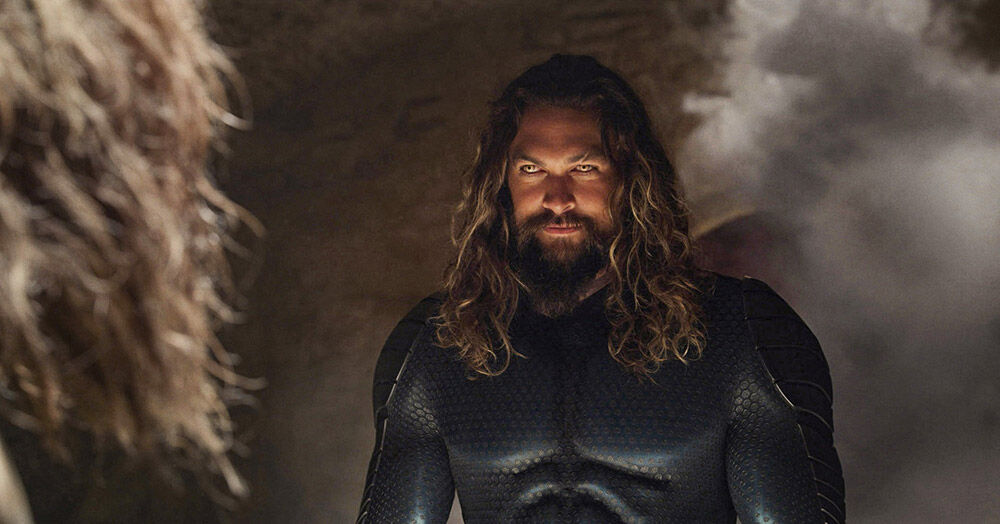
It was also never intended as such but Aquaman and the Lost Kingdom is also the final film of the beleaguered DCEU, following a series of underwhelming performances from other DCEU titles including Black Adam and Shazam: Fury of the Gods. It’s somewhat bittersweet that this film, the last of the DCEU, is a fun farewell that reminds us of the franchise’s absconded potential.
While its predecessor’s billion-dollar box office haul set a high bar, this sequel faces the added challenge of navigating a divided fan base. Off-screen, the film’s journey to the big screen has been equally dramatic. Amidst rumours of poor test screenings and reshoots, director James Wan has had to navigate choppy waters.
Yet, as the lights dim and the film unfolds, it becomes clear that this sequel might just have the power to reinvigorate the DCEU and offer a glimpse into its future under Gunn’s vision. As the last movie before James Gunn’s takeover of the DC Universe, it is poised to either cap off the old era on a high note or serve as a bridge to a reinvigorated future.
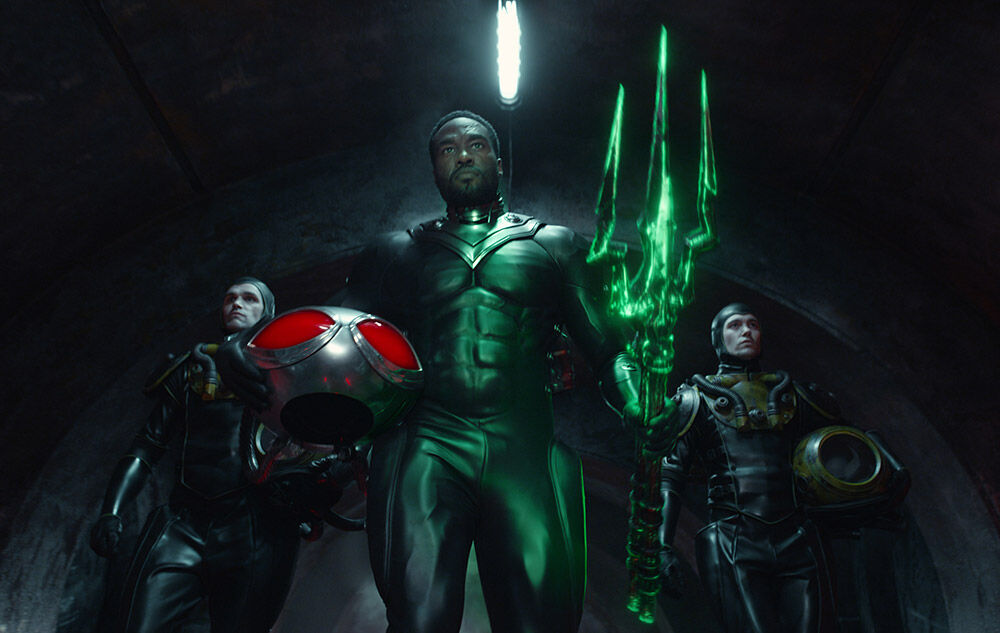
As Jason Momoa reprises his role as the iconic title character of Arthur Curry, he is thrust into an epic battle to save Atlantis from a catastrophic ancient power hidden beneath the ice. The stakes couldn’t be higher, as the film immerses audiences in a whirlwind of intense comic book action. This time around, Arthur’s adversary is more daunting than ever, as arch enemy Black Manta, fueled by vengeance after the death of his father caused by Arthur himself, wields the formidable Black Trident and awakens a sinister force. To stop Black Manta, Arthur forms an unlikely alliance with his half-brother Orm (Patrick Wilson), the deposed former King of Atlantis.
The returning cast includes Amber Heard as Mera, Nicole Kidman as Atlanna, Yahya Abdul-Mateen II as the vengeful Black Manta, Dolph Lundgren as King Nereus, and Randall Park, who takes a significant leap from his familiar comedic roles, such as the one in Fresh Off The Boat, to embody a more serious and layered character, Dr. Stephen Shin. Park’s character is caught in a moral dilemma, grappling with decisions that weigh heavily on his conscience. Throughout the film, audience will witness a remarkable evolution in his character, culminating in a compelling arc by the movie’s conclusion.
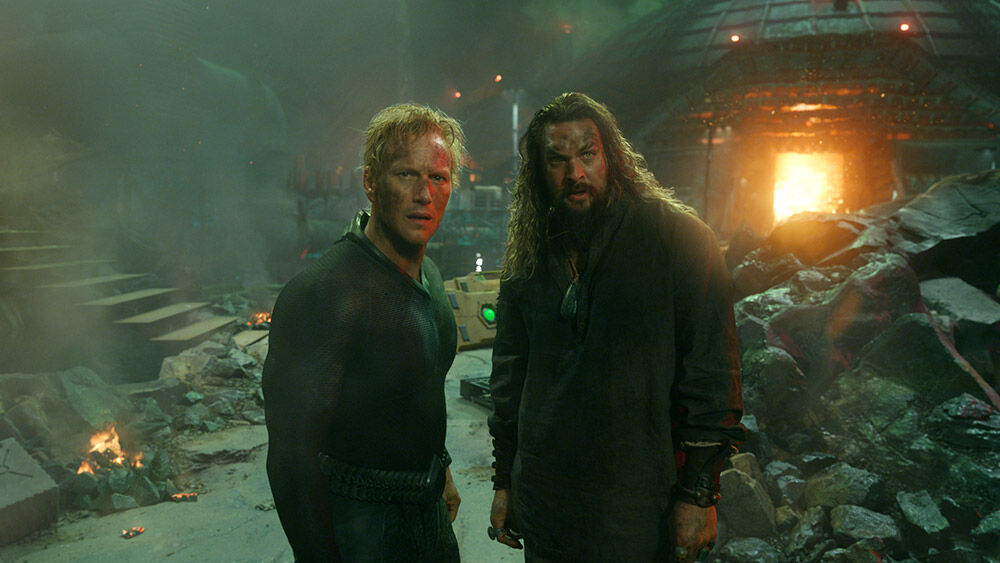
At the core of Aquaman and the Lost Kingdom is an exploration of themes that delve into the complexities of brotherhood, betrayal, and the quest for redemption. The film portrays Aquaman’s unexpected alliance with his half-brother Orm, setting up a dynamic reminiscent of the intricate, captivating, and sometimes humorous brotherly relationship between Thor and Loki in Marvel’s Cinematic Universe. This narrative choice adds a layer of familial drama and moral ambiguity, enriching the storyline with emotional depth.
Patrick Wilson’s portrayal of Orm stands out in this second lap, infusing the character with a multifaceted depth that transcends the typical villain archetype. Wilson brings a certain gravitas to Orm, making him a character filled with internal conflict and a sense of honour, even as he grapples with his own demons and ambitions. His performance ensures that Orm is not just another antagonist, but a pivotal figure whose actions and decisions significantly impact the narrative’s direction. His complex relationship with Aquaman adds a rich texture to the film, elevating it beyond a mere spectacle and into a story of familial bonds tested by power and duty.
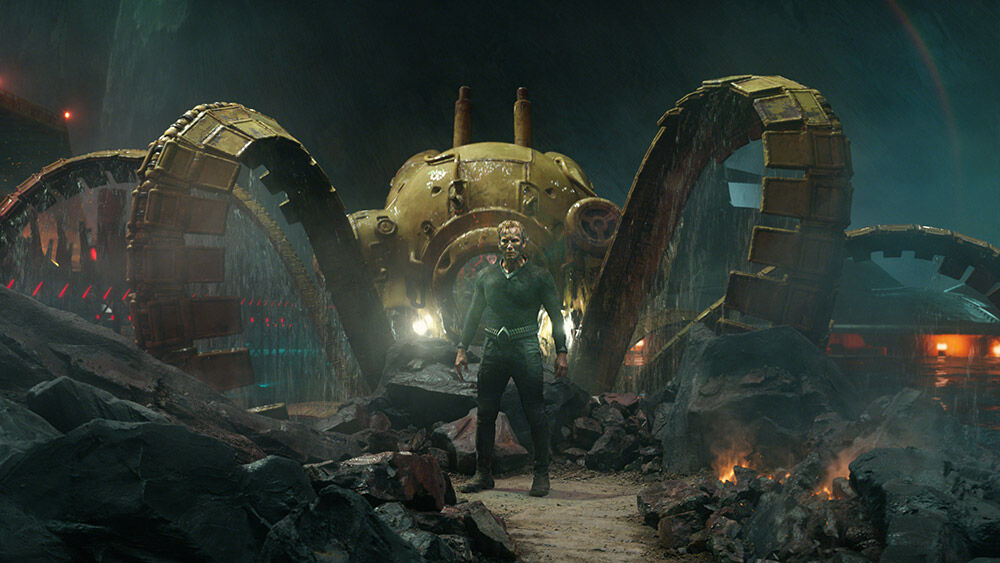
David Leslie Johnson-McGoldrick’s screenplay, co-written with Wan, Momoa, and Thomas Pa’a Sibbett, intertwines horror with adventure. The monstrous creatures, reminiscent of Wan’s earlier horror works, add a spine-chilling dimension to the film, setting it apart in the superhero genre.
Wan has also gone for broke here, unleashing a visual feast, merging the fantastical and horrifying into an overwhelming spectacle. The film’s torrent of supercharged underwater extravaganzas, mythical creatures, and grandeur of battles reminiscent of epic sagas like Lord of the Rings, captivates with its ornate aqua-mech and epic battles. However, this barrage of visuals sometimes eclipses subtlety, opting for an all-out visual assault rather than a nuanced reveal. Wan’s renowned mastery over both fantasy and horror is evident, yet the film’s grandiose approach occasionally drowns out the potential for more restrained, subtle storytelling moments.
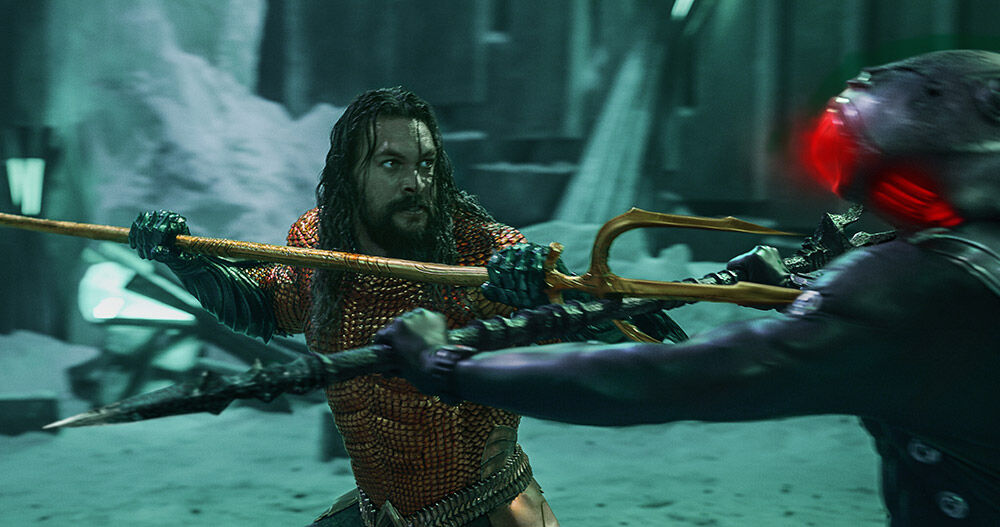
At times, Aquaman and the Lost Kingdom seems to hurtle through its plot points, leaving a sense of haste in its storytelling. The film often leans on familiar tropes common in comic book adaptations, making some of its plot developments feel somewhat predictable. This reliance on well-trodden paths, while providing a sense of familiarity, occasionally detracts from the potential for more innovative and surprising narrative choices. Certain scenes, especially those pivotal to character development or plot progression, seem to follow an expected trajectory, diminishing the opportunity for fresher, more unexpected story arcs that could have enhanced the overall cinematic experience.
Aquaman and the Lost Kingdom also falters in its climactic showdown. The anticipated final battle, set to be a cataclysmic clash against an ancient, world-threatening power, unravels with an unexpected ease that borders on anticlimactic. Instead, the fight wraps up too swiftly, diminishing the gravitas of the threat. This ease of victory, while a relief for our heroes, leaves the audience yearning for a more substantial and challenging resolution befitting the build-up of this high-stakes narrative.
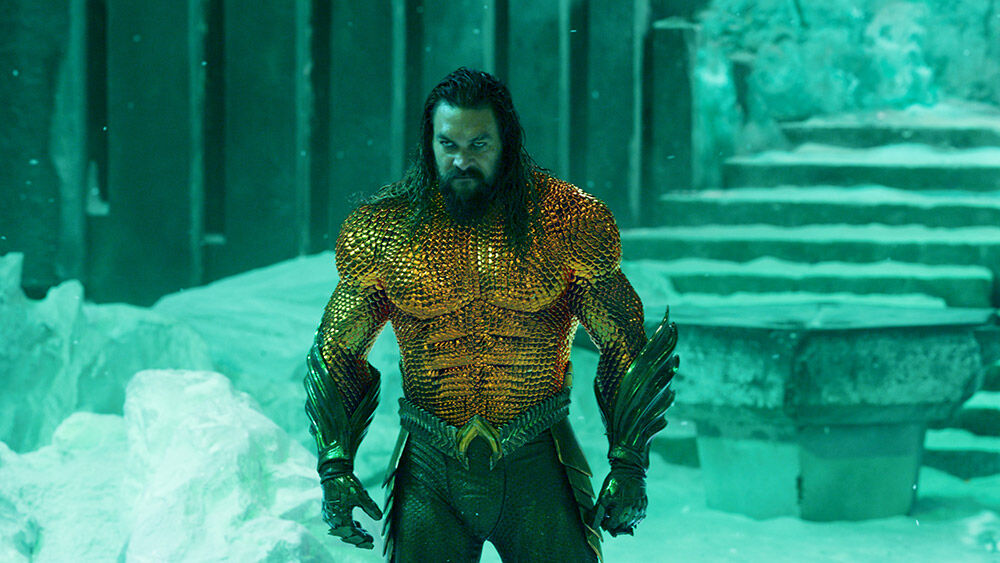
Yet, the film ultimately stands as a testament to the enduring appeal of its central character, Aquaman, and the rich, imaginative world he inhabits. Despite its narrative and pacing missteps, the film triumphs in delivering a visually stunning and action-packed adventure. Jason Momoa’s charismatic portrayal of Arthur Curry, coupled with a strong ensemble cast, ensures that the film remains engaging and entertaining throughout. While it may not fully live up to the lofty expectations set by its predecessor, it nonetheless provides a thrilling and enjoyable experience for fans of the genre, and a fitting farewell to the current era of the DCEU.
GEEK REVIEW SCORE
Summary
Aquaman and the Lost Kingdom presents a visually stunning and action-packed adventure, led by Jason Momoa and marked by themes of brotherhood, culminating in a fitting farewell to the current DCEU.
Overall
8.2/10-
Story - 8.5/10
8.5/10
-
Direction - 7.8/10
7.8/10
-
Characterisation - 8.5/10
8.5/10
-
Geek Satisfaction - 8/10
8/10

